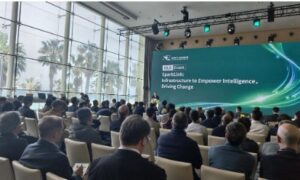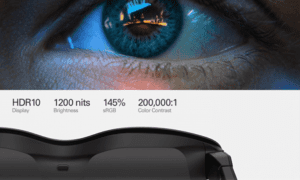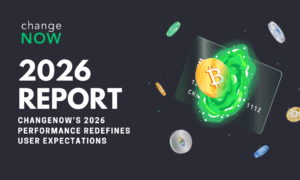As the future of work evolves, so too must the ways in which businesses support their employees. Hybrid and remote working models are now the norm across the tech industry and beyond, reshaping expectations around what it means to have a positive employee experience. While health insurance, pension contributions, and flexible working hours remain important, the focus is shifting towards more immediate, lifestyle-oriented perks that deliver everyday value.
One area gaining traction is food. Dining-related perks—once limited to in-office snacks or the occasional team lunch—are being reimagined for the digital age. Whether it’s a discounted takeaway, a free coffee on a Monday, or a voucher for a celebratory dinner, these benefits are increasingly seen as a valuable and practical addition to modern employee benefits.
Far from being a gimmick, dining perks are proving their worth as a flexible, inclusive and morale-boosting tool in the post-pandemic workplace. They address employee needs across remote, hybrid and office-based setups and align with broader trends in workplace wellbeing and digital convenience.
The Rise of Lifestyle-Centred Perks
Over the past decade, there has been a notable shift from purely financial rewards to experience-driven benefits. Employees now look beyond base salary when evaluating job satisfaction, with many citing lifestyle perks as a key influence on their decision to join or stay with a company.
Dining benefits fit neatly into this evolution. They’re accessible, easy to implement, and immediately appreciated. For employees, food-related perks offer tangible support in day-to-day life—whether it’s saving money on lunch, skipping meal prep after a long day, or enjoying a treat on a Friday.
For employers, they represent a relatively low-cost but high-impact way to engage staff and foster goodwill. In fast-paced sectors like tech, where burnout and attrition are common, this kind of small but meaningful gesture can make a real difference.
Enhancing Remote and Hybrid Culture
One of the biggest challenges in the modern workplace is building and maintaining culture among dispersed teams. With fewer in-person interactions, businesses must find creative ways to keep people connected and engaged.
Dining perks provide an unexpected yet effective solution. They encourage shared experiences—team lunches, virtual “takeaway Fridays”, or reward meals after project milestones—that can be enjoyed collectively even from different locations.
This is particularly useful for remote-first or globally distributed teams, where time zones and geography make traditional social activities more difficult. Sending a meal voucher or coffee code to someone’s inbox might seem like a small gesture, but it’s one that contributes to a sense of inclusion and appreciation.
Food and Mental Wellbeing
Wellbeing has become a cornerstone of employee engagement strategies in recent years, and rightly so. Stress, anxiety, and burnout are common concerns across all industries, but particularly in fast-paced, always-on sectors such as tech and digital.
While many employers have embraced mindfulness apps, flexible working hours, and wellness programmes, food remains an often underutilised wellbeing tool. Eating well—and regularly—is essential to both physical and mental health. Yet for many busy professionals, it’s also one of the first things to slip when deadlines loom.
Providing access to discounted or convenient meal options can alleviate this pressure, ensuring that employees don’t have to choose between meeting targets and meeting basic needs. It’s a practical, people-centred approach to wellbeing—one that doesn’t rely on abstract commitments, but on tangible daily support.
Inclusive by Design
Unlike some workplace perks that appeal to niche interests or certain demographics, dining benefits are almost universally appreciated. Everyone eats. Whether an employee prefers vegan food, gluten-free meals, fine dining or fast casual, a well-designed food perk can cater to individual preferences without requiring complicated personalisation from the employer.
This inclusivity makes dining rewards especially attractive for companies with diverse teams—spanning different cultures, age groups, and working patterns. Rather than trying to anticipate every possible interest, businesses can offer a benefit that allows employees to make choices that suit their own lifestyles.
This level of flexibility also makes it easy to scale. Whether a company has 10 employees or 1,000, dining benefits can be rolled out consistently and fairly, with little administrative overhead.
More Than a Free Lunch
Some critics may argue that food perks are superficial or short-term in nature. But in truth, their value lies not in replacing deeper forms of compensation, but in enhancing the overall employee experience.
When used thoughtfully, dining rewards can serve as a marker of appreciation, a tool for social connection, and a contributor to daily wellbeing. They demonstrate that an employer understands and supports the everyday realities of their staff—a sentiment that’s increasingly rare, and increasingly valuable.
In a market where employee expectations are rising, and loyalty is harder to earn, small perks with high perceived value can offer a real competitive edge. Not as a gimmick, but as part of a holistic approach to looking after your people.
Implementing Dining Perks in a Tech-First World
With the rise of app-based reward platforms, implementing dining benefits is easier than ever. Many services now offer plug-and-play systems where employees can redeem discounts, track rewards, or receive personalised offers via their smartphone. These systems can integrate with existing HR or benefits platforms, streamlining administration for employers.
This tech-enabled approach also provides valuable insights into usage patterns, allowing businesses to refine and improve the perk over time. For example, if employees consistently engage with coffee shop offers over restaurant vouchers, companies can adjust future incentives to maximise impact.
As the workforce continues to shift and diversify, so too must the way businesses think about engagement, wellbeing and reward. Dining perks may not be a silver bullet—but when implemented thoughtfully, they offer a modern, accessible and impactful addition to your employee benefits package.
From boosting morale to supporting wellbeing, reinforcing culture to building inclusivity, food is proving to be far more than just fuel in the modern workplace. It’s a tool for connection, recognition and retention—and one that forward-thinking employers should consider putting firmly on the menu.



























